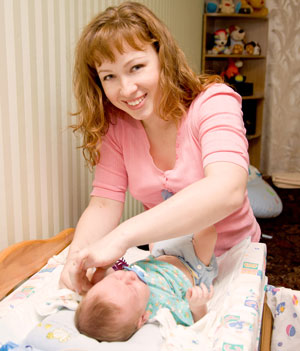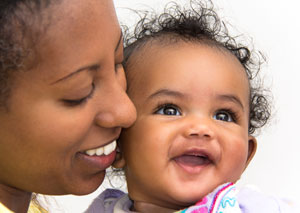
Being a mum is one of the most fulfilling and rewarding roles in life. It can also be challenging, stressful and exhausting.
Mums experiencing a mental illness have the extra challenge of managing the demands of their recovery with the everyday roles and responsibilities of being a mum.
Pregnancy
Pregnancy can be a time of joy and excitement. It can also be a time of fear and uncertainty. Regardless of how it feels, most people will find the journey of becoming and being a parent one of the biggest challenges of their lives.
Talking with your doctor or health care provider
It’s important you feel comfortable discussing your mental and physical health with your doctor or health care provider.
- Talk with your doctor or health care provider about your plans to have a child and how you will manage your mental illness during pregnancy.
- Ask your doctor about any medications or treatments you are taking, and if they will impact on your pregnancy, your baby’s development or breastfeeding.
- Recreational drugs, alcohol and smoking (including misuse of prescription medication) can affect your own physical and mental health, including the health of your unborn baby.
- Talk with your doctor about the support you need to manage cigarettes, alcohol or drugs. There are non-judgemental services available (such as the Family Drug Support Line on 1300 368 186).
Getting prepared
Consider the following to ensure you are as relaxed as you can be before you have your baby:
- Attend antenatal visits and talk to your doctor, midwife or obstetrician about your physical and emotional needs.
- Develop a baby care plan so you know your baby will be taken care of if you become unwell.
The importance of a support system
Looking after yourself for your baby
Your baby needs you to be as well as possible. Some tips that may help you be at your best for your baby (and other children) include the below:
- Continue to visit your treating psychiatrist or doctor to discuss your medication.
- Engage the support systems around you – from your partner, family and friends to healthcare and other support professionals. Getting support will reduce the stress of parenting on your mental health and vice versa.
- Remember that there are other parents who will be experiencing the same feelings. Consider joining a mothers or baby group, or catching up with those in your antenatal class for additional support and to share your learning and experiences.
- Remember too that you can always call Lifeline on 13 11 14 or the Parentline in your state.
Plan ahead to manage separation when you are unwell
Planning for your baby’s needs if you become ill and/or require hospitalisation is incredibly important and ensures you have a say in what happens to your baby.
Infants do not always cope well with separation from their parent. Spend some time with your partner, a good friend, your doctor or another health worker who knows you well to develop a plan of action that you’re happy with in this situation. Developing a baby care plan so you know your baby will be taken care of as you wish if you become unwell is a good move.
Helpful resources
- Pregnancy, birth and baby website – Offers free information and a 24-hour helpline for advice and support from qualified counsellors.
- ‘The Best for Me and My Baby’ – A COPMI booklet about managing mental health during pregnancy and early parenthood.
- Managing mental health conditions during pregnancy and early parenthood: A guide for women and their families – A helpful beyondblue booklet
- ‘Piecing the Puzzle Together’ – A COPMI booklet about raising young children when mental illness is a part of your life.
- Parentline in different states – Who to call for parenting support, counselling and parent education across Australia.
- The Australian Breastfeeding Association – Australia’s largest breastfeeding information and support service, including a breastfeeding support line available 7 days a week.
- The Post and Antenatal Depression Association (PANDA) – PANDA offer a wealth of information on their website on this topic, including a separate website for Dads. They run the National Perinatal Depression Helpline that provides support, information, referral and counselling to Australia parents and their families.
- The Raising Children Network – Australia’s complete parenting resource with information and video content on all stages of parenthood, from pregnancy to newborns to teens.
- My Child – Australia’s online child care services portal.



